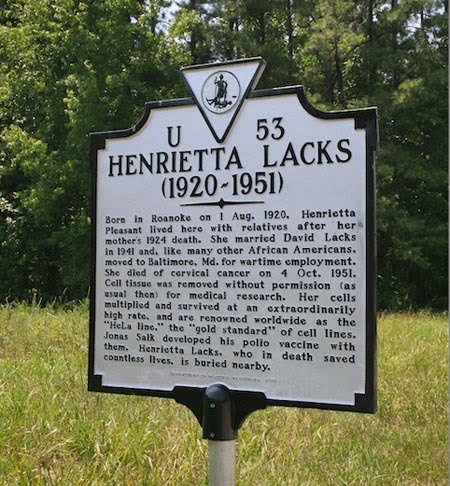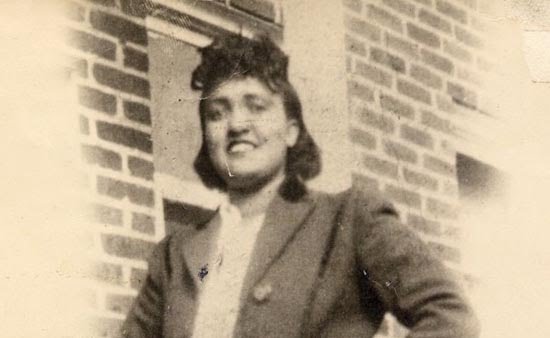Henrietta Lacks was an African American woman living in Baltimore, MD, when she was stricken with cervical cancer at the age of 31.
Now her hometown of Roanoke, Virginia, will erect a bronze statue of her to commemorate her life and legacy.
The statue will stand in what used to be called Lee Plaza—a square that honored Confederate General Robert E. Lee, where a statue of Lee was pulled down in 2020 during unrest over the murder of George Floyd. [See: Commemorating the Dismantling of Confederate Monuments] Roanoke City Council has chosen to rename the area in honor of Lacks.
The story of Henrietta Lacks
Many people are familiar with Lacks’s story through the 2011 book, The Immortal Life of Henrietta Lacks, by Rebecca Skloot, or the 2017 HBO film starring Oprah Winfrey and Rose Byrne. The basics are these: Johns Hopkins Medical Center, the only hospital in Baltimore that treated African Americans in the early 1950s, was unable to save her life, but surgeons did extract some of the cells from her tumor for experimentation—without her permission. Most such cells died, but hers, called HeLa cells for her first and last names, not only survived but reproduced quickly.

Ever since Lacks’s death in 1951, HeLa cells have been used by countless medical research organizations. They have helped create vaccines for Covid-19 and polio, as well as in virus research and to help develop cancer treatments. Many private and public institutions have profited from their use, to the extent that, in 2021, her descendants and other family members sued a biotechnology company, Thermo Fisher Scientific Inc., of Waltham, Massachusetts, for continuing to profit from the cell line.
She literally changed the world
In praising the announcement of the new statue, the Lacks family attorney Ben Crump said, “There are a lot of historical figures who we like to suggest…
Read the full article here



